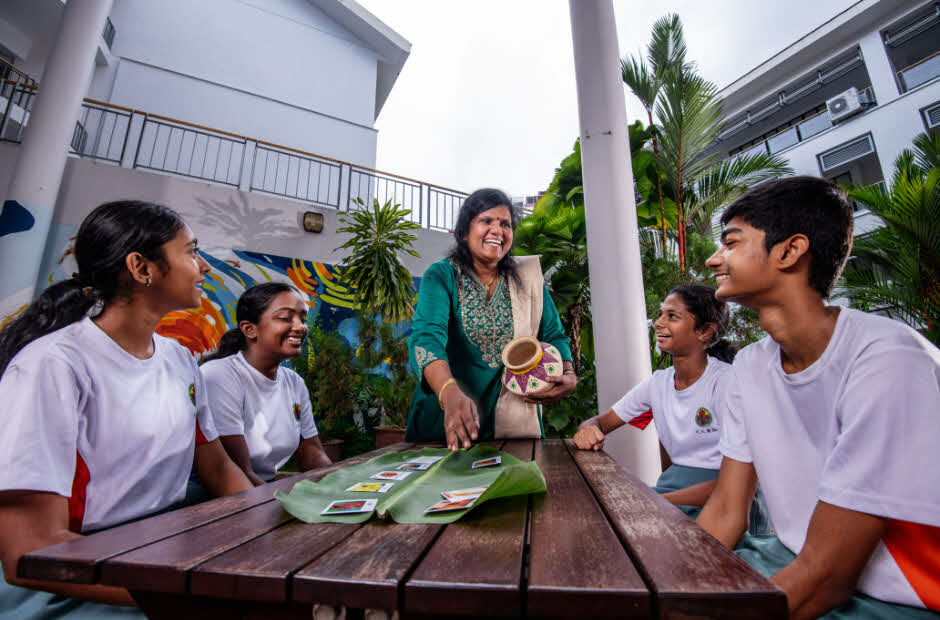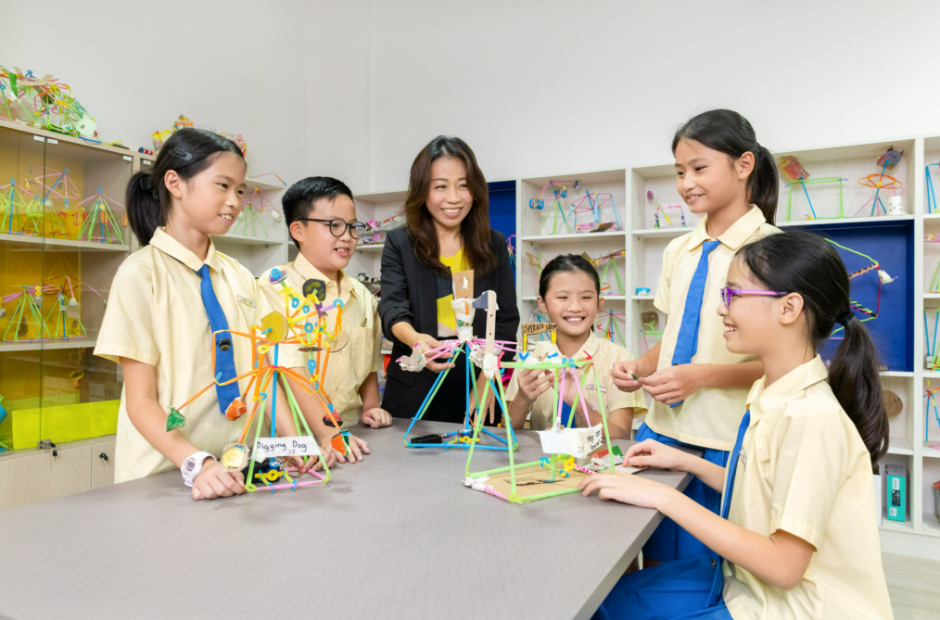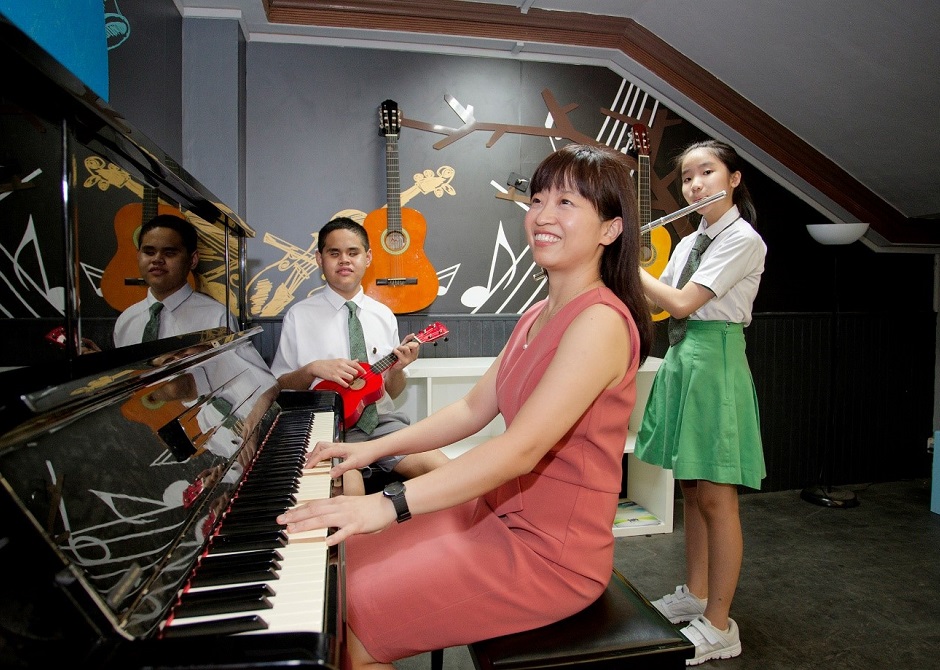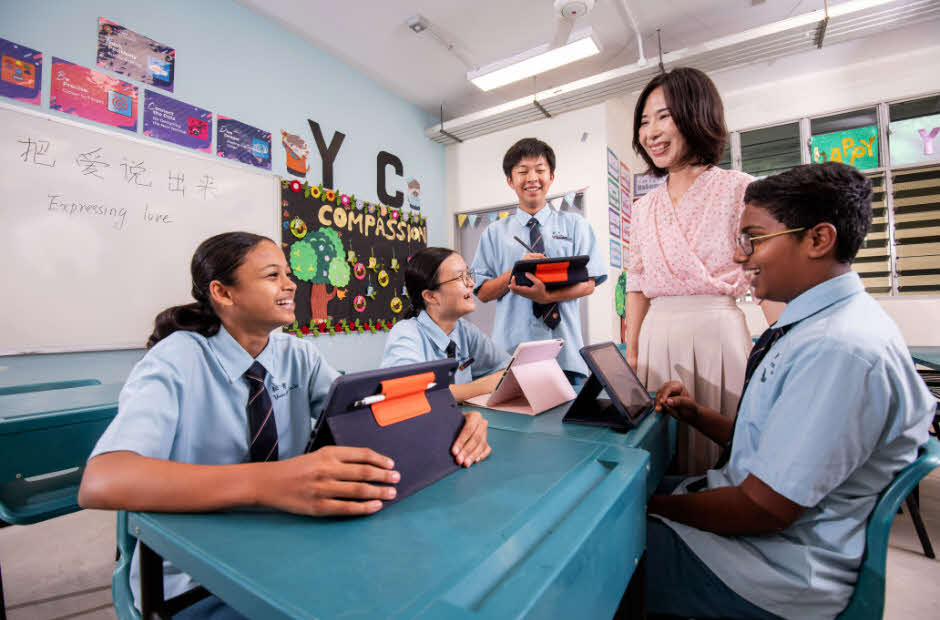Mrs Yogeswari Balasubramanian didn’t start off as a language teacher. She was tutoring a student with special needs in Maths, when the student’s mother noticed that she had exceptional patience with her child, always trying out new ways to help him understand concepts. The parent suggested that she should take up teaching as a career. 25 years later, having taught English, Maths, Science and now teaching Tamil Language in school, Mrs Bala (which is how her students address her) still feels the passion for her profession like she did years ago.
Inspiration: Language and culture come hand in hand
When Mrs Bala started teaching the Tamil language in 2007, she saw greater meaning in her work than before. She was drawing from her Tamil heritage, collaborating with the local Tamil community, and presenting students with a welcoming environment where Tamil language and culture is nurtured. To Mrs Bala, language should not be separated from culture, and social and emotional experiences.
“This is what the Tamil language means to me,” she says. “It’s not just about writing an essay or giving an answer. No, you must feel it. Feel the richness. Then use the language.”
Transformation: Developing a better teaching team and lessons
When Mrs Bala assumed the role of Tamil Language Coordinator at Punggol Secondary School in 2020, her first order of business was to strengthen the culture of collaboration in her team of Mother Tongue teachers.
She identifies their strengths, and then leverage those strengths to enhance their capacity.
A teacher whose strength is at teaching composition, for example, will provide consultancy in that area for all graduating students. Likewise, Mrs Bala will offer coaching for oral skills, which is one of her expertise areas, to all students from the graduating classes. Through this approach, the teachers become a stronger team as a result, and students benefit from their combined synergy.
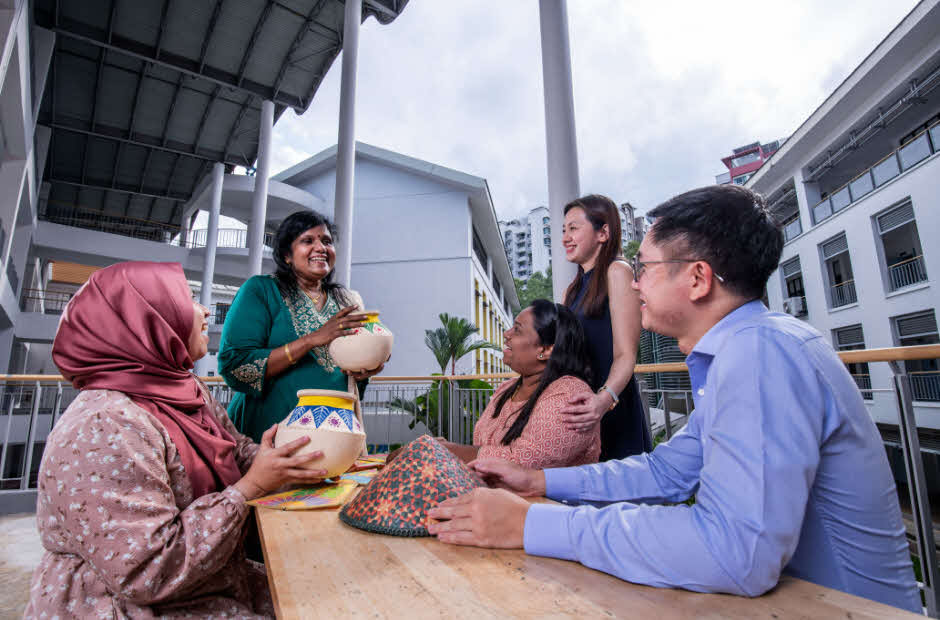
One of the ways she structures learning in her lessons and increases engagement is through a Blended Learning method called Station Rotation. She creates three activity stations each focused on one aspect of a topic, splits the students into three groups, and each group takes 15-minute turns at each station to participate in the activities.
For example, she conducted a lesson based on the theme on hospitality customs, or virundhombal, using Station Rotation and it proved to be a hive of activity from the start. Students at the first station were shown a meal served on a banana leaf as a symbol of hospitality and the values of being a good host. An online clip explained the customs further. At the second station, students learned the meaning behind the arrangement of the dishes on the banana leaf through a short activity and a quiz. The third station connected the past customs to the present by making students think deeper why this custom was declining. By the end of the hour, students were exposed to all facets of the topic. This method keeps things fun and engaging for the students.
Her lessons are also subtly differentiated for the diverse needs of her students. At a station, a student could choose between online research or gamification of the same content, depending on their ability and inclination. Another station could focus on hands-on activity like puzzles, or the matching of pictures or words.
This means Mrs Bala has been busy arming herself with e-pedagogy skills to continually strengthen and hone her craft.
As a member of the school’s EdTech Task Force of the Mother Tongue Languages department, she shares her know-how with her colleagues, including concepts such as e-pedagogy and flipped classroom. She has also extended her reach beyond the school by presenting at the National ICT Fest 2021 on how different ICT tools can be used to enhance engagement with students.
Reflection: Show care and the learning will follow
“Better teachers make for better students,” says Mrs Bala, on why she avails herself as a mentor to younger teachers. She is head of the Tamil Cluster Representative Committee among schools in the north.
For aspiring teachers, she has three pieces of advice. One, to follow their passion for a subject, as it will lead them to find the best way to teach it. Two, to respect their students, their strengths as well as their weaknesses, and to never give up on them. Three, to show them kindness and the commitment to teach them well, as they will reciprocate in the same ways.
She adds, “It’s never about drilling them in the subject. I take care of them, I show them my love genuinely, and when they are comfortable with me, they will excel.”
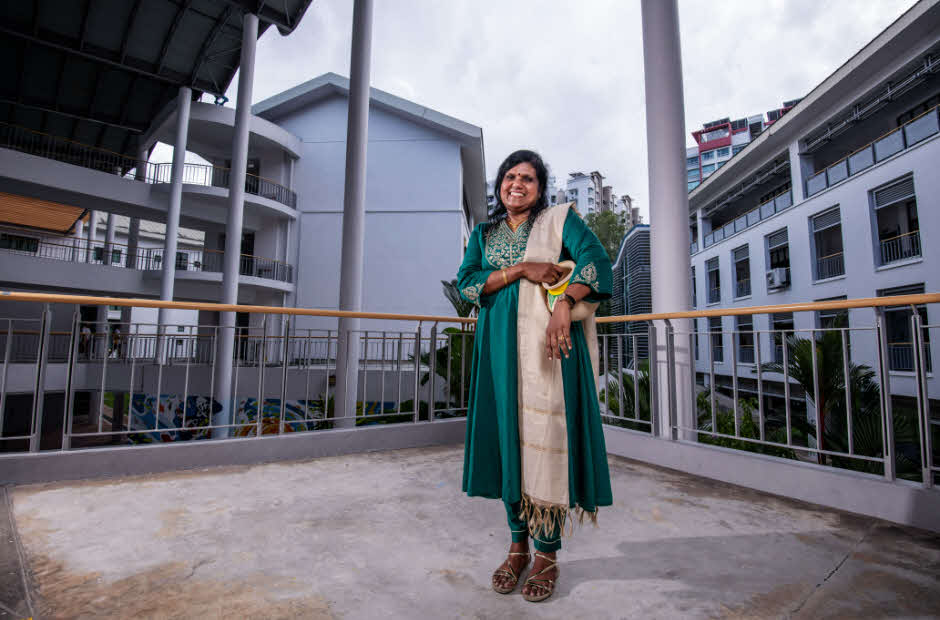
“This is what the Tamil language means. It’s not just about writing an essay or giving an answer. No, you must feel it. Feel the richness. Then use the language.”
Mrs Yogeswari Balasubramanian



